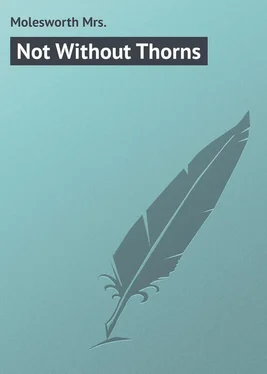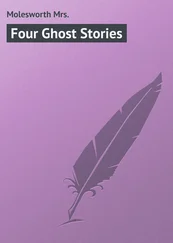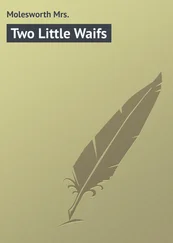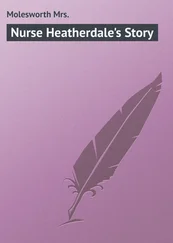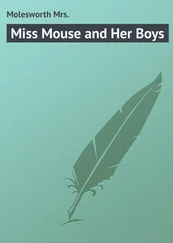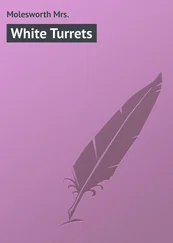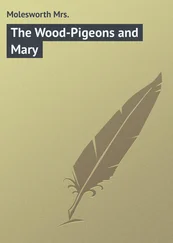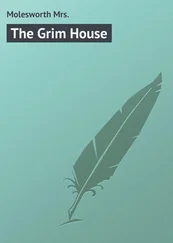Mrs. Molesworth - Not Without Thorns
Здесь есть возможность читать онлайн «Mrs. Molesworth - Not Without Thorns» — ознакомительный отрывок электронной книги совершенно бесплатно, а после прочтения отрывка купить полную версию. В некоторых случаях можно слушать аудио, скачать через торрент в формате fb2 и присутствует краткое содержание. Жанр: foreign_prose, на английском языке. Описание произведения, (предисловие) а так же отзывы посетителей доступны на портале библиотеки ЛибКат.
- Название:Not Without Thorns
- Автор:
- Жанр:
- Год:неизвестен
- ISBN:нет данных
- Рейтинг книги:4 / 5. Голосов: 1
-
Избранное:Добавить в избранное
- Отзывы:
-
Ваша оценка:
- 80
- 1
- 2
- 3
- 4
- 5
Not Without Thorns: краткое содержание, описание и аннотация
Предлагаем к чтению аннотацию, описание, краткое содержание или предисловие (зависит от того, что написал сам автор книги «Not Without Thorns»). Если вы не нашли необходимую информацию о книге — напишите в комментариях, мы постараемся отыскать её.
Not Without Thorns — читать онлайн ознакомительный отрывок
Ниже представлен текст книги, разбитый по страницам. Система сохранения места последней прочитанной страницы, позволяет с удобством читать онлайн бесплатно книгу «Not Without Thorns», без необходимости каждый раз заново искать на чём Вы остановились. Поставьте закладку, и сможете в любой момент перейти на страницу, на которой закончили чтение.
Интервал:
Закладка:
She had flung herself down on the rug by her sister, and as she spoke she raised herself on her elbows, her head a little thrown back in her excitement, her bright, expressive eyes looking up eagerly into Sydney’s face. Sydney looked full of interest and inquiry; over her face, fair and soft and girlish as it was, there crept an expression of almost maternal anxiety.
“I am glad you enjoyed it so much,” she said, sympathisingly. “Mrs Dalrymple was very kind, I suppose. Did you see that nice-looking Miss Eyrecourt again? Is she still there?”
“She was, but I think she was to leave to-day,” said Eugenia. Then after a little pause she went on again – “Yes, she is handsome, certainly; but, Sydney, I don’t think I like her. But never mind about her. Oh, Sydney, I did so enjoy it all.”
“I am very glad,” said the younger sister again; “but tell me, Eugenia, why did you enjoy it so much?”
It was very strange – now that she had Sydney all to herself comfortably – Sydney, as eager to hear, as ready to be sympathising as the most exacting narrator could demand, it seemed to Eugenia she had nothing to tell. At first the younger sister felt rather puzzled, but before long the mystery was explained – an accidental allusion to the hero of the evening by name, and Sydney understood the whole; understood it, young as she was, far better than Eugenia herself. The discovery by no means diminished her anxiety, the cause for which she, perhaps, a little exaggerated. She knew her sister’s fitfulness and impressionability; she suspected, though but dimly, the unsounded depths beneath. Yet she made an almost unavoidable mistake in judging this vivid, complex, immature nature too much by her own. How could a girl of seventeen, wise though she might be for her years, have done otherwise?
She kept her suspicions to herself, her misgivings also at first, but she did not altogether succeed in concealing her gravity.
“What are you looking so gloomy about, Sydney?” said Eugenia.
“I don’t quite know. I can’t exactly say why I feel so – not gloomy, Eugenia, but anxious,” she replied. “I am not sure that I like that Captain Chancellor, however handsome and charming he is. I don’t think it was quite nice of him picking you out in that conspicuous way. It must have made people notice you.”
“ That would never trouble me,” said Eugenia, loftily; but still the half-expressed doubt in her sister’s words seemed to echo some hitherto unacknowledged instinct in herself. Sydney went on speaking —
“I have often felt a sort of vague dread of finding ourselves really grown-up, Eugenia. Papa can’t enter into things as a mother could, though he is so kind and gentle. We seem to be thrown so on our own resources. I don’t, of course, mean so much with regard to myself;” here a faint tinge of pink crept over her face; “I am wonderfully, unusually fortunate; but that does not make my anxiety for your happiness the less; I wish we had a mother, Eugenia.”
“So do I,” said the elder girl, wistfully. “Even if she had lived a few years with us it would have been different. But not even to be able to remember her! We can’t expect papa to see that we are too much thrown upon ourselves, for he has never seen it otherwise. And, of course, Aunt Susan is less than no good. However, Sydney,” she went on, in a different tone, “as far as regards this Captain Chancellor, whom, for some reason – I don’t know what, I don’t think you quite do yourself – you are so afraid of, you may set your mind at rest. I have been thinking very seriously to myself to-day. I thoroughly understand myself and the whole position of things, and I am very well able to take care of myself. I am not going to have my head turned so easily.”
Sydney smiled, and shook her head.
“I hope not,” she said. Eugenia grew more earnest.
“Don’t look so unconvinced,” she remonstrated. “Even supposing I were so contemptibly silly, do you think I couldn’t stop in time – do you think I would let any one – even you – find it out? But, after all, what is more to the purpose, and will satisfy you better than all my assurances, the chances are very small that I shall ever meet this dangerous person again. So forget all about him, Sydney, and I shall too. By-the-bye, how strange it will seem to have Gerald Thurston here again. I am glad for papa’s sake.”
“And for our own sakes too,” said Sydney, with some indignation. “I think you are strangely ungrateful, Eugenia. Have you forgotten how very, very kind he was to us – to you especially? I know you cried bitterly when he went away.”
“Did I? I was a child,” said Eugenia, indifferently. But immediately her mood changed. “No, Sydney,” she exclaimed, “it is ungrateful of me to speak like that; I do remember and I shall always like Gerald. But Frank provokes me into seeming uninterested by the fuss he makes about Gerald, as if such a piece of perfection never existed before. And you’re nearly as bad yourself. Now, don’t look dignified. I cannot help being contradictory sometimes. Kiss me, Sydney;” for by this time Sydney had risen and was really leaving the room, but stopped to kiss her sister as she was told. “That’s a good child, and thank you for your advice, or warning, whichever it was, though I really don’t need it as much as you think. I promise to forget all about Captain Chancellor as fast as I can. There now, won’t that please you?”
The “forgetting all about him” was not to be done in a minute, she found, though she set to work at it vehemently enough; for the leaving anything alone, allowing a possible evil to die a natural death, as is not unfrequently the wisest policy, was a negative course quite opposed to Miss Laurence’s principles. Constantly during the next few days she found herself speculating on the possibility of her meeting Captain Chancellor again, recalling his words, and looks, and tones; but these “follies” she did her best to discourage. Never had she been more active or energetic in her home duties, never more resolutely cheerful. Sydney watched her, wondered, and admired, but still could not feel quite as easy in her mind as before the talk in the old school-room. Eugenia, on the contrary, was eminently pleased with herself, and had thoroughly recovered her own respect. The task set before her she imagined to be all but achieved – the goal of perfect mastery of the impression she now believed to have been a very fleeting one, all but won.
One day at dinner, within a week of the foggy evening, her father turned towards her with a startling announcement.
“Oh, by-the-bye, Eugenia, I was forgetting to tell you. I expect two or three gentlemen to dine here the day after to-morrow. Mr Foulkes, the school-inspector, you know, Mr Payne, and Frank Thurston – there is just a chance of Gerald, but Frank hardly expects him so soon, he has been detained in town by business – and I asked Captain Chancellor, the Dalrymples’ friend. He called on me yesterday at my office to get a little local information he required, and I was much pleased with him. He seems very intelligent, and superior to most young men of his standing. It must be dull for him here – very different from a place where there is a large garrison – but he says he likes it better.”
Eugenia hardly heard her father’s last words: she was conscious only of a rush of tumultuous, bewildering delight. What had become of her strong-mindedness, her self-control, all her grand resolutions? She felt that Sydney was purposely not looking at her; it was almost worse than if she had been. Never mind! Sydney soon would be able to judge for herself as to whether she were, after all, so very silly. In any case this was not of her doing – this unhoped-for fulfilment of her dreams. Dreams she had not encouraged, had kept down with a strong hand. It had been right to do so; might not this news of her father’s be looked upon as her deserved reward? The idea was a pleasant one; it excused to herself her own extreme, unreasonable happiness.
Читать дальшеИнтервал:
Закладка:
Похожие книги на «Not Without Thorns»
Представляем Вашему вниманию похожие книги на «Not Without Thorns» списком для выбора. Мы отобрали схожую по названию и смыслу литературу в надежде предоставить читателям больше вариантов отыскать новые, интересные, ещё непрочитанные произведения.
Обсуждение, отзывы о книге «Not Without Thorns» и просто собственные мнения читателей. Оставьте ваши комментарии, напишите, что Вы думаете о произведении, его смысле или главных героях. Укажите что конкретно понравилось, а что нет, и почему Вы так считаете.
